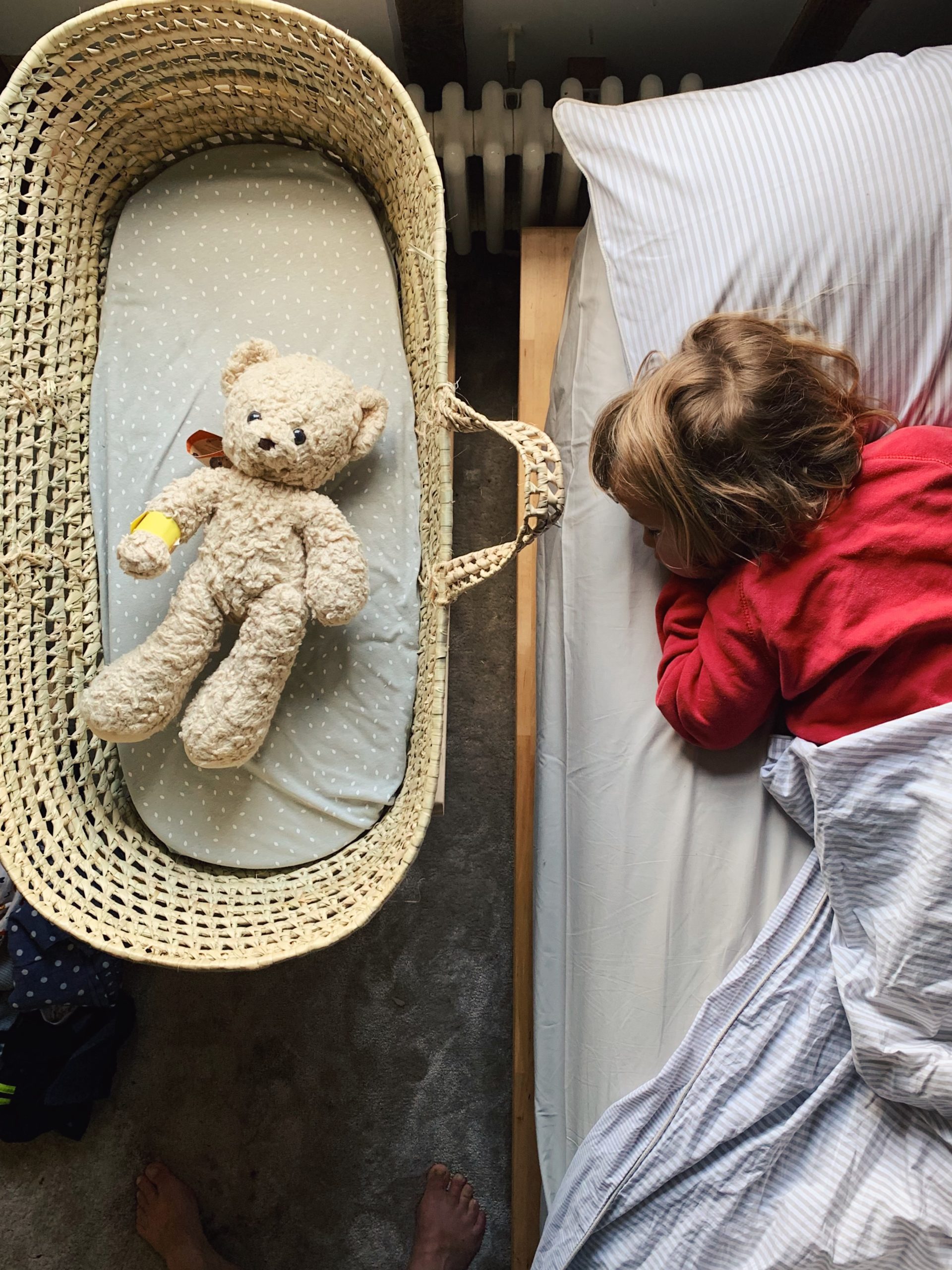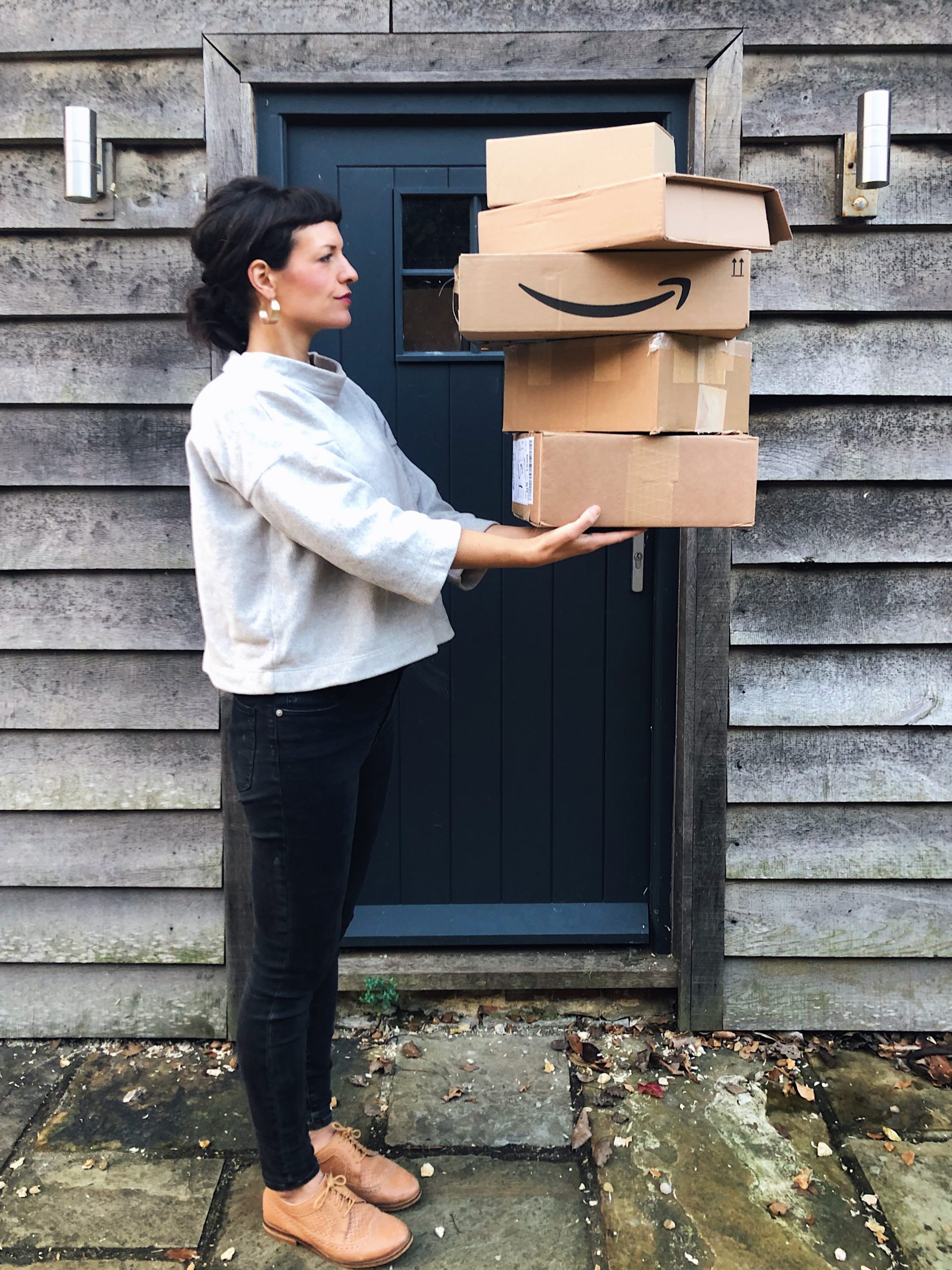How to start a backyard chicken coop!
Before we get to chickens let’s just start by saying: you probably know I don’t like saying “How To” and prefer to tell you “How WE” and what we learned so this is that! Alright, here you go!
We LOVE having hens and what they add to our lives and it’s a journey I highly recommend anyone goes on! The fresh eggs, the morning routine with our kids and seeing them take responsibility for them, the manure from our garden, the circle of life, and mostly for me – knowing exactly what’s happening in our food and where it’s coming from. There are many practices in egg production I don’t love and so bringing it home is a step we can take to keep our food local and know what’s happening.
For the most part chickens are easy to keep! They need feeding and watering, letting out and shutting up at night, and that’s about it. But things can go wrong and at times you may need to put extra work and some extra money into fixing them.
How we got started with chickens!

4 years ago turned an old shed in our new home into a coop, and found some birds on online labelled “you catch”. Big mistake. My sister came with me and we ran round in the dust chasing semi wild chickens with 2 kids in tow and brought home 4 slightly ragged birds. We ended up losing 3 of them to birds of prey and added 7 more which the seller said they thought were hens. A few weeks later half began to loudly let us know they were roosters. A year later one of them sat on a cluster of eggs and started to hatch them… and despite being shut away safely from bigger animals we lost every single one to a snake overnight. It was an immersion into the circle of life with a toddler, but we still. loved having them.
We rehomed them when we moved to England and reinvested from a more reputable breeder. We got 8 16 week old birds. Since then we’ve rescued a few and added more babies and I think we’ll have chickens forever! I love keeping our food sourcing as close as we can and being able to do all the pieces the best way possible. Eliminating things I don’t love about “traditional” egg production is a huge reason I do this. I also love the responsibility it gives the kids, growing up seeing the work that goes into food when they don’t want to do it and when they do.
If you’re thinking about keeping chickens, here are a few things you’ll want to think about as you prepare and factors you’ll want to explore.
THINGS TO CONSIDER:
What are the local regulations in your area?
This is probably where you’ll need to start as it will affect all the other choices on starting out. There may be neighbourhood or local rules or more national rules that apply to backyard birds, especially if you intend to sell the eggs. DEFRA in the UK requires registration of more than 50 birds and you can sell eggs as long as you stick to a few rules. You also can’t feed kitchen scraps in this country which you can in most. Many city neighbourhoods in the US restrict keeping chickens or just the owing of a rooster so check local rules.
You may also need to have provisions for an annual bird flu lockdown. Ask other chicken owners in your area, or look at your local authorities to see. Many areas need birds completely contained for a period and this may take a completely separate setup – and more money and space.
Where will they live?
Chickens don’t need much and you don’t need a prefab chicken structure you can potentially work with a space you already have. In general they need:
- somewhere safe to sleep at night
- somewhere to roost on a bar above the ground for the night
- a space with good ventilation
- protection from the elements
- access to food and water
- somewhere to nest to lay eggs
- adequate space to move around and eat.
The RSPCA suggest 12 square meters is sufficient for 30 chickens but I think that’s minimal if it’s not rotated. You can have birds in a static coop or in a “chicken tractor” which can have great benefits in providing the birds with fresh space and grass each day, and also fertilising the grass or a growing space. You also need to decide what you want in terms of the food source and quality or life for your birds. They can forage more or eat more grain, what they do more of will determine how much space they’ll need. There are many prefab chicken coops you can buy like the Omlet, or wooden ones of various sizes, or you can adapt a structure you already have if you have one. We started with a static coop we inherited but we’re now moving to converting a dog kennel into a chicken tractor so they can graze and take more food from the ground as well as fertilise our growing space.
What elements and predators do you need to protect them from?
Your birds will need to be protected from rain, and have shade from sun and heat and cool water if it’s hot, but you may need to consider other factors depending on where you live. Chickens are fine with cold but if it goes below freezing you’ll need to have insulation for the coop and you may need to take specific care of individual birds with larger combs or ones that are more sensitive. There are many ways to insulate a coop such as bedding and closing windows, and depending on the elements where you are there will be different things you need to do.
What age birds will you get?
You can buy hens, pullets, chicks, or eggs, or hatch your own once you have a flock and they all have factors to consider. Chicks will need a heat lamp, pullets (a young hen) may need different food but they’re both cheaper, and if they’re younger than 18-25 weeks they won’t ben laying yet. But an older bird than 25 weeks will have already laid some of her eggs and so have less laying life ahead of it. We’ve bought young and rescued old, and most recently we’ve chosen 16 week pullets. I think it’s the best place to start for ease.
What breed will you get?
There are many options! Some lay less during the winter, some lay more, some are better in cold or better at are ranging and other things so think about what you want – is it varied coloured eggs, steady laying, pretty hens? Do some research!
Where will they come from?
You can order hatching eggs or chicks online, find them at feed supply stores, or get birds locally. But finding a reputable breeder and considering if you want them vaccinated against various things or from somewhere certified organic is something to think about. As with our first batch, there are often also birds available on informal local selling sites. If you’re buying just female chicks, I suggest asking what happens to the male chicks where you are getting them from, and if you’re buying eggs to hatch and will therefore get male birds you’ll need a plan for them – you could revoke them or keep them for meat but you’ll need a plan.

Where will they lay?
Chickens need warm, dry, draught free nesting boxes to nest in and you don’t by any means need one
per chicken. One per 4-5 birds is what I do. You also don’t need a special nesting box, we’ve repurposed drawers from an old dresser just fine!
What bedding will you use?
There are many things you can bed chickens on and it will depend on what you have available to you and different factors. We’ve used shavings, wood chip, and straw and for the most part straw is my top choice. It’s a good insulator and it’s widely available where we are for little money and without being wrapped in plastic like shavings.
The downsides with straw are it’s not super absorbent so it needs changed, and that if you get mites they live in the straw and are hard to get rid of. You also want to make sure it’s not sprayed straw.
What are they going to eat?
Chickens are omnivores, they’re not vegetarian like many people think! They’ll forage for seeds, grasses, bugs and also munch a snail or frog or even a mouse if one shows up. Young chicks have different needs from layer hens and when they are laying you need to make sure your chickens are not getting deficient in anything. A layer pellet will take care of most of their needs but you might also want to supplement them with oyster shells, crushed egg shells (just don’t make them look like eggs or it can induce egg pecking) or something else to help them stay healthy. You can also go down the route of sprouting your own grains or even growing for your chickens. So decide what’s best for you and your costs and life.
Will you have roosters?
We’ve had hens with and without roosters and there are many factors to consider. It’s something I’d like to go back to mainly because I can raise my own chicks rather than buying them in – it will let us close the loop a little more and do things exactly the way we want. Having a rooster can also provide some protection to the hens. You will then have fertilised eggs, which is important to note as not everyone is ok with that. And if you are going to raise chicks, you’ll want somewhat of a plan for that.
How will they fit into your day and life?
Chickens don’t need much work, but they need regular work. For me they’ve needed the most work when I’ve tried (and succeeded) to treat red mites naturally. It took me 30-60 minutes a day of cleaning/spraying/treating the coop but it worked! Depending on your enclosure you’ll need to let them out in the morning and shut them away at night, check food and water at least a day, collect eggs daily, and clean out a coop periodically. Thinking about how you’ll fit them in your day before adding them will help you figure out your situation well.
What will you do when they don’t lay?
I think it’s important to remember that both during the winter, and later in life you’ll have chickens that you pay to feed, but don’t get a return from in eggs. Are you ok with that? Can you afford that potential imbalance? Can you retire them on grass or will you eat them? There are many different ways to arrange your circle of life, but you need to have a bit of an idea of what you’ll do so you don’t get caught out.
Conclusion
I started with chickens honestly before considering all of those things and learned a lot along the way! You don’t have to know everything and really they’re (for the most part) simple and easy little creatures that will take a few minutes of your time a day with great reward! There are so many benefits to keeping backyard chickens and for so many reasons it’s something I recommend anyone at all who can should do! During the war it was recommended in the US and UK and it’s something that’s become abnormal now but we really need to move back towards.







